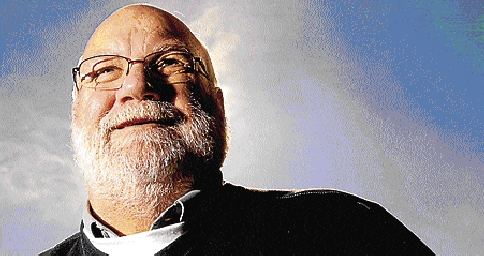REG Eustace can remember, early in 2009, pulling a small parcel from his letterbox and pondering the discreet packaging.
It was a bowel cancer screening test, sent from the Cancer Council and recommended for people over 50.
The Caroline Springs resident remembers feeling as though he was going against the “typical male” stoicism he and many of his friends had displayed for most of their lives.
“I actually used the kit, when most of my life I’d avoided doctor visits and tests.
“I had no signs or symptoms, but it was such a simple test I did it anyway.”
A few days later Reg was concerned when the results came back positive.
He immediately had a colonoscopy performed by his GP.
Reg, a business counsellor at Kangan TAFE, was shocked to find out he had early-stage cancerous growths inside his bowel.
He was operated on within a week.
“I had part of my bowel removed, but because it was detected so early the surgery went smoothly. I only had to wear the colostomy bag for four months before everything was back together.”
Reg’s doctor has declared him “squeaky clean,” but he also told him that if he had let it go another 12 months the cancer could have seeped into the blood stream, which could have threatened his life.
Last week was Bowel Cancer Awareness Week, prompting Reg to say that too many men and women avoid bowel cancer tests.
“Even at its advanced stages the cancer can still be symptom-less, they call it the silent killer … it’s just so dangerous to put it off.”
He says even after his ordeal, he has mates who have the test material sitting on a shelf at home. “One of my mates has had it there since 2009. I tell him he’s a fool. I think people might be embarrassed or something, but the message I want to make clear is that it saved my life.”
The federal government’s recent budget committed almost $50million for increased bowel cancer screening.
There’s a five-year survival rate of just over 60per cent at all stages of the cancer, which is the second-largest cause of cancer death in the country.
Both men and women are at risk, but the risk is greater for those over 50 with a history of the disease or a history of inflammatory bowel disease and Crohn’s disease.
Tests are available from pharmacies and the Cancer Council.
More details: bowelcanceraustralia.org or cancer.org.au







